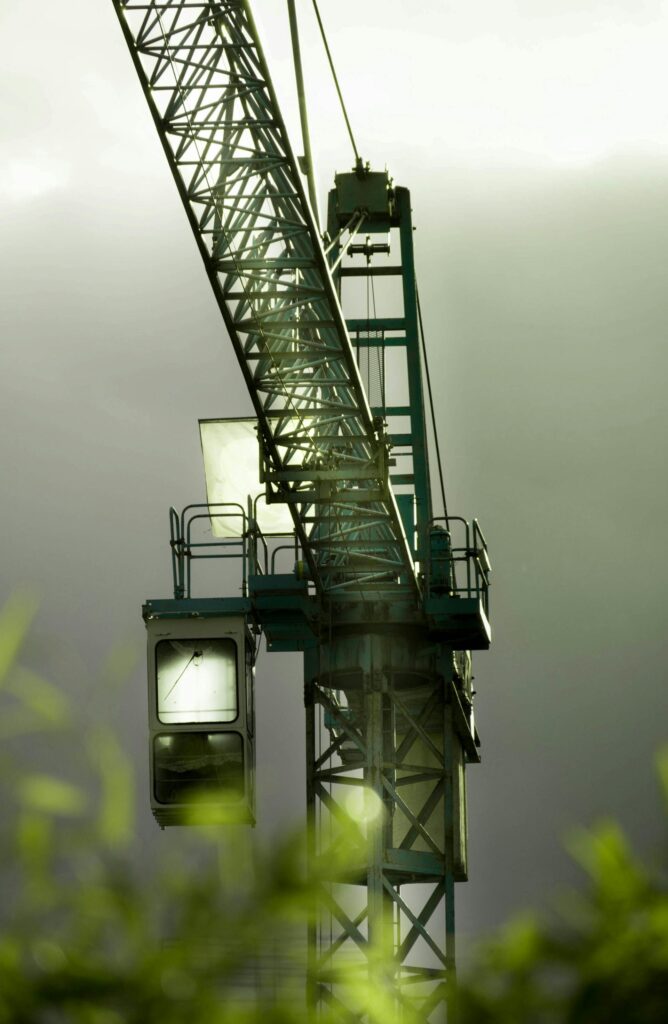Crane Rental vs. Ownership: Pros and Cons for Businesses
In the world of construction and heavy industry, cranes are indispensable tools for lifting and moving heavy loads. However, businesses face a crucial decision when it comes to acquiring cranes: should they opt for crane rental or invest in ownership? Each option comes with its own set of advantages and disadvantages, which must be carefully considered to make the most suitable choice for the specific needs and circumstances of the business.

Pros and Cons of Crane Rental
Pros
- Flexibility: One of the primary benefits of crane rental is flexibility. Businesses can rent cranes on a short-term or long-term basis according to their project requirements. This flexibility allows them to scale their operations up or down as needed without being tied to the long-term commitment of crane ownership.
- Cost-effectiveness: Renting a crane can be more cost-effective for businesses, especially those that do not require cranes for regular or continuous use. By opting for rental, businesses can avoid the high upfront costs associated with purchasing a crane, as well as expenses related to maintenance, repairs, and storage.
- Access to specialized equipment: Crane rental companies often offer a wide range of crane types and models to suit different project requirements. This gives businesses access to specialized equipment that they may not need to own outright, saving them the expense of purchasing and maintaining multiple types of cranes.
- Maintenance and servicing: When businesses rent a crane, they typically benefit from maintenance and servicing provided by the rental company. This can help ensure that the crane remains in optimal working condition throughout the rental period, without the need for the business to invest time and resources in maintenance tasks.
Cons
- Limited control: Renting a crane means that businesses have limited control over the equipment compared to ownership. They must adhere to the terms and conditions set by the rental company, which may restrict how the crane can be used and operated.
- Dependency on rental availability: Depending on the demand for cranes in the rental market, businesses may face challenges in securing the specific type of crane they need within the desired timeframe. This dependency on rental availability could potentially delay project timelines and increase costs.
- Long-term costs: While crane rental can be cost-effective in the short term, businesses that require cranes for an extended period may end up paying more in rental fees compared to the cost of purchasing a crane outright. Over time, the cumulative rental expenses could outweigh the initial investment in ownership.
- Lack of customization: Rental cranes may not always meet the exact specifications and requirements of a particular project. Businesses may have limited options for customizing rented cranes to suit their specific needs, which could impact efficiency and productivity on the job site.
Pros and Cons of Crane Ownership
Pros
- Long-term investment: Purchasing a crane represents a long-term investment for businesses, providing them with a valuable asset that can be used repeatedly over time. Unlike rental fees, which are ongoing expenses, the cost of ownership is finite and can potentially offer a higher return on investment.
- Control and flexibility: Crane ownership gives businesses full control over the equipment, allowing them to customize and configure it according to their specific requirements. They can also use the crane whenever needed, without being constrained by rental availability or terms of use.
- Branding and marketing opportunities: Owning a crane can serve as a form of branding and marketing for businesses, as the equipment can be branded with company logos and colors. This visibility on job sites can help promote the business and enhance its reputation within the industry.
- Tax benefits: In many cases, businesses can take advantage of tax incentives and deductions associated with crane ownership, including depreciation allowances and interest deductions on financing arrangements. These tax benefits can help offset the initial cost of purchasing a crane.
Cons
- High upfront costs: One of the main drawbacks of crane ownership is the high upfront costs involved in purchasing the equipment. Businesses must be prepared to make a significant financial investment, which may require securing financing or allocating funds from their budget.
- Maintenance and servicing: Owning a crane entails responsibility for maintenance, repairs, and servicing, which can add to the overall cost of ownership. Businesses must budget for ongoing maintenance expenses and ensure that the crane is properly maintained to prevent breakdowns and downtime.
- Depreciation: Like any other piece of heavy equipment, cranes depreciate in value over time. Businesses that own cranes may experience a decline in the asset’s resale or trade-in value, particularly as newer models and technologies enter the market.
- Storage and transportation: Owning a crane requires adequate storage space when the equipment is not in use, which may pose logistical challenges for businesses, especially those with limited space. Additionally, transporting the crane to and from job sites can incur additional costs and logistical complexities.
In summary, the decision between crane rental and ownership involves weighing the pros and cons based on the specific needs, budget, and circumstances of the business. While crane rental offers flexibility and cost-effectiveness, ownership provides control, long-term investment potential, and branding opportunities. Ultimately, businesses must carefully evaluate their requirements and consider factors such as project duration, frequency of crane use, budget constraints, and long-term goals to determine the most suitable option for acquiring cranes.
